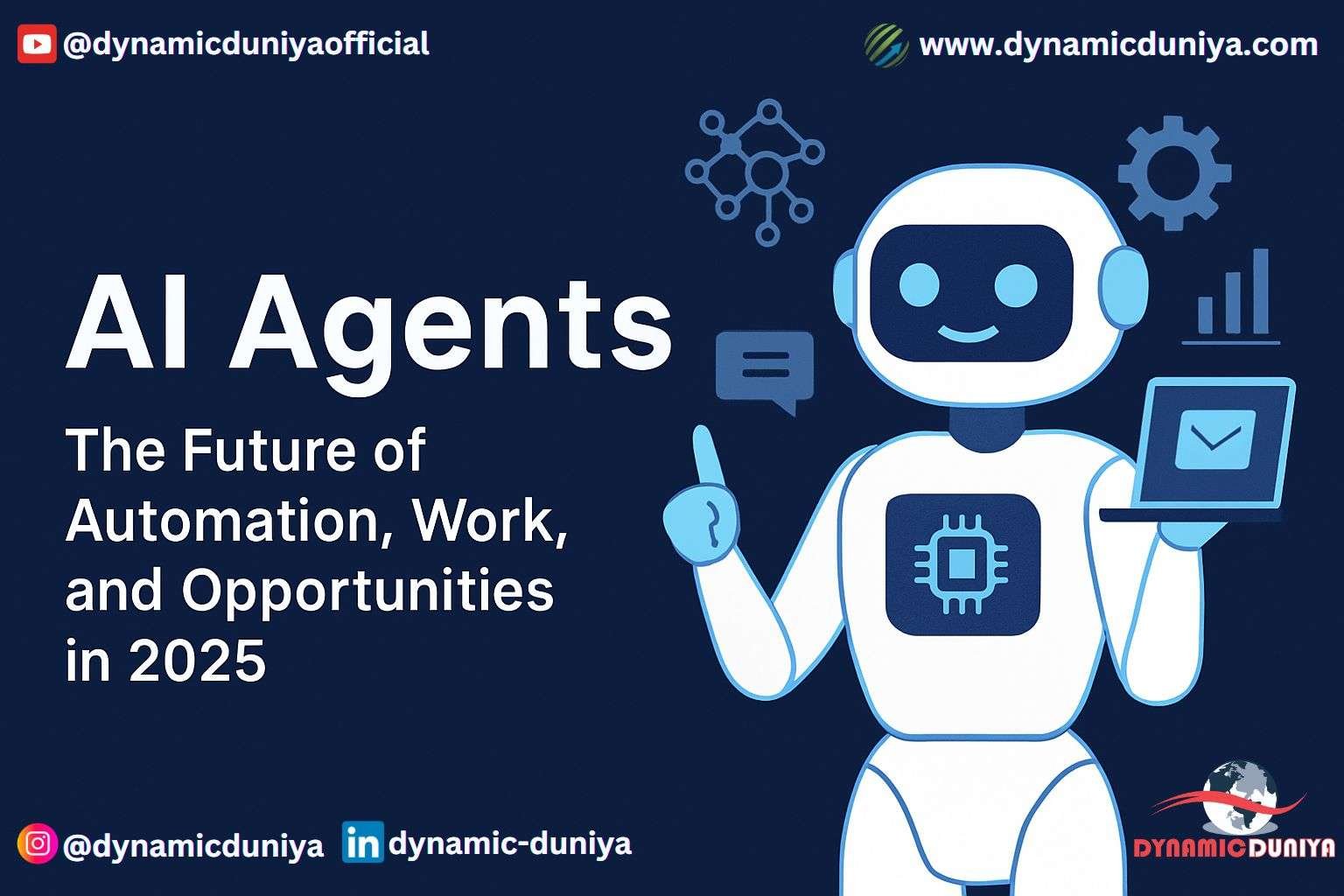Transforming Logistics: The Power of AI in Supply Chain Management

Introduction
The supply chain and logistics industry is the backbone of global commerce. As industries demand faster deliveries and smarter planning, Artificial Intelligence (AI) is revolutionizing how goods move, warehouses operate, and businesses forecast demand. From autonomous delivery systems to predictive analytics, AI is making supply chains more efficient, agile, and resilient.
What is AI in Supply Chain & Logistics?
AI in this domain refers to the integration of intelligent systems capable of learning, reasoning, and decision-making to optimize supply chain processes. It includes technologies such as:
- Predictive analytics
- Machine learning algorithms
- Natural Language Processing (NLP)
- Computer vision
- Robotics and autonomous systems
These tools help companies enhance visibility, forecast demand, manage inventory, and optimize routes, all while reducing costs and improving customer satisfaction.
Real-World Applications
- Predictive Demand Forecasting: AI models predict product demand using historical data, market trends, and seasonality.
- Warehouse Automation: Robots powered by AI pick, pack, and move items, reducing human error and speeding up operations.
- Route Optimization: AI finds the fastest, most fuel-efficient delivery routes using real-time traffic data.
- Inventory Management: AI ensures optimal inventory levels, reducing both overstocking and stockouts.
- Fraud Detection: AI identifies anomalies in shipping or billing, reducing financial losses.
Industries Using AI in Logistics
- E-commerce (Amazon, Flipkart)
- Retail (Walmart, Target)
- Transportation & Freight (DHL, FedEx, Maersk)
- Manufacturing (Toyota, GE)
- Pharma and Healthcare (Pfizer, Medtronic)
Top Companies Hiring in This Domain
- Amazon Web Services (AWS)
- IBM
- SAP
- Oracle
- Microsoft
- Maersk
- FedEx
- Tata Consultancy Services (TCS)
- Infosys
- Blue Yonder
Salary Trends in 2025 (India)
- AI/ML Engineer in Logistics: ₹8-18 LPA
- Data Analyst / Data Scientist: ₹7-20 LPA
- Logistics AI Product Manager: ₹12-25 LPA
- Robotics Engineer (Warehouse automation): ₹6-15 LPA
Note: Salaries depend on experience, skills, and company size.
Global Demand & Future Scope
AI in supply chain is projected to grow at a CAGR of over 45% through 2030.
Increasing investment in AI-driven logistics startups.
Growing demand for zero-latency, real-time decision-making systems.
Countries leading in adoption:
- USA
- Germany
- India
- China
- Japan
Career Roadmap: How to Start
Step 1: Learn the Basics
- Understand supply chain fundamentals
- Learn Python and data handling libraries (Pandas, NumPy)
- Get familiar with SQL and Excel
Step 2: Learn AI/ML Concepts
- Supervised/unsupervised learning
- Forecasting models
- Clustering and classification techniques
Step 3: Tools & Technologies
- AI platforms: TensorFlow, PyTorch
- Data visualization: Power BI, Tableau
- Logistics platforms: SAP, Oracle SCM, Blue Yonder
Step 4: Specialize in Logistics Use Cases
- Predictive analytics for demand
- Route planning algorithms
- Inventory and warehouse optimization
Step 5: Work on Projects / Internships
- Build a portfolio of real-world case studies
- Participate in AI hackathons or supply chain competitions
Step 6: Apply for Roles
- Start as an analyst or junior ML engineer
- Grow into logistics strategist, AI consultant, or product manager
Conclusion
AI is a game-changer in the supply chain and logistics space. Whether you're a student exploring tech or a professional looking for a pivot, this domain offers a blend of innovation, challenge, and opportunity. With the right skills and focus, you can become a key driver in the next revolution of intelligent logistics.
Random Blogs
- Store Data Into CSV File Using Python Tkinter GUI Library
- 5 Ways Use Jupyter Notebook Online Free of Cost
- How Multimodal Generative AI Will Change Content Creation Forever
- Grow your business with Facebook Marketing
- How to Become a Good Data Scientist ?
- Variable Assignment in Python
- Understanding SQL vs MySQL vs PostgreSQL vs MS SQL vs Oracle and Other Popular Databases
- How AI Companies Are Making Humans Fools and Exploiting Their Data
- Compiler SQL Online: A Beginner-Friendly Guide to Running SQL Queries Anywhere
- AI in Cybersecurity: The Future of Digital Protection
Prepare for Interview
- JavaScript Interview Questions for 5+ Years Experience
- JavaScript Interview Questions for 2–5 Years Experience
- JavaScript Interview Questions for 1–2 Years Experience
- JavaScript Interview Questions for 0–1 Year Experience
- JavaScript Interview Questions For Fresher
- SQL Interview Questions for 5+ Years Experience
- SQL Interview Questions for 2–5 Years Experience
- SQL Interview Questions for 1–2 Years Experience
- SQL Interview Questions for 0–1 Year Experience
- SQL Interview Questions for Freshers
- Design Patterns in Python
Datasets for Machine Learning
- Awesome-ChatGPT-Prompts
- Amazon Product Reviews Dataset
- Ozone Level Detection Dataset
- Bank Transaction Fraud Detection
- YouTube Trending Video Dataset (updated daily)
- Covid-19 Case Surveillance Public Use Dataset
- US Election 2020
- Forest Fires Dataset
- Mobile Robots Dataset
- Safety Helmet Detection
- All Space Missions from 1957
- OSIC Pulmonary Fibrosis Progression Dataset
- Wine Quality Dataset
- Google Audio Dataset
- Iris flower dataset
- Artificial Characters Dataset
- Bitcoin Heist Ransomware Address Dataset






